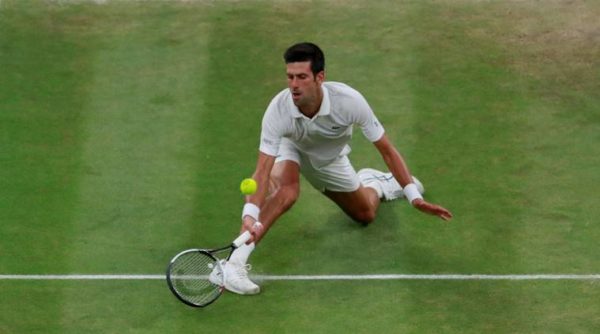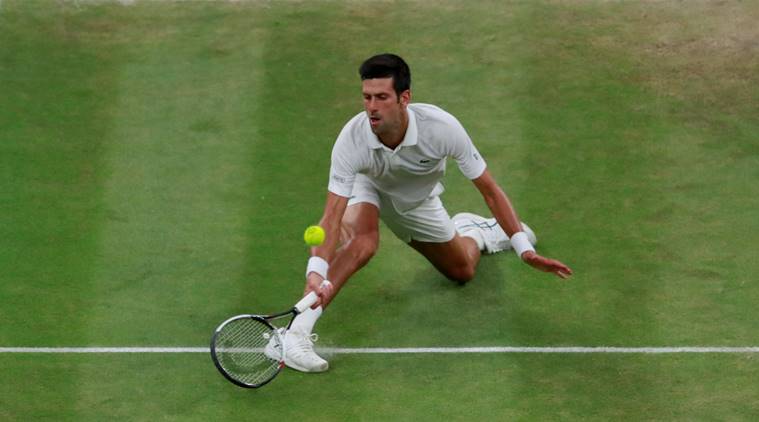Tennis star Novak Djokovic is set to be deported from Australia after losing a last-ditch court bid to stay in the country.
Judges rejected the Serbian’s challenge to the government’s decision to cancel his visa on “health and good order” grounds.
The world number one’s hopes of defending his Australian Open title and winning a record 21st Grand Slam in Melbourne are over.
Novak Djokovic, 34, said he was “extremely disappointed” but accepted the ruling.
He said in a statement: “I will co-operate with the relevant authorities in relation to my departure from the country.”
It was not immediately clear when he would leave.
Novak Djokovic’s supporters fell silent outside the courtroom as the decision was announced.
Australian PM Scott Morrison welcomed “the decision to keep our borders strong and keep Australians safe”.
“Australians have made many sacrifices during this pandemic, and they rightly expect the result of those sacrifices to be protected,” he said.
Novak Djokovic launched the case after Immigration Minister Alex Hawke used his ministerial powers to cancel the unvaccinated player’s visa, arguing that his presence in the country risked fanning anti-vaccine sentiment.
It was the second time Novak Djokovic’s visa had been revoked, after a first cancelation over not following Covid entry rules was overturned by a different judge.

Novak Djokovic in Detention Ahead of Visa Appeal Hearing
Novak Djokovic’s Australia Visa Revoked for Second Time
Novak Djokovic’s Australia Entry Delayed over Visa Issue
Coronavirus: Novak Djokovic Tests Positive for Covid-19
During January 16 court hearing before a three-judge panel, Novak Djokovic’s defense unsuccessfully argued that the grounds given by the government were “invalid and illogical”.
Chief Justice James Allsop said the federal court’s ruling was based on the lawfulness and legality of the minister’s decision, not on the “merits or wisdom of that decision”.
Full reasoning for the ruling will be made public in the coming days, he said.
Deportation orders usually include a three-year ban on returning to Australia, though this can be waived in certain circumstances.
The January 16 decision marks the end of a 10-day saga over Novak Djokovic’s Australian visa.
There has been much public anger in Australia over the player’s attempt to enter the country unvaccinated. The federal government has repeatedly said people must comply with the strict laws in place to deal with the pandemic, and that no-one is “above the law”.
Novak Djokovic was originally granted a medical exemption to enter Australia by two different independent health panels – one commissioned by Tennis Australia, the other by the state government of Victoria – after testing positive for coronavirus in mid-December.
However, the Australian Border Force detained him on January 5 for not meeting federal coronavirus requirements.
A judge later overturned that decision, but the government stepped in on January 14 to revoke the visa again, saying doing so was in the public interest.
Although Novak Djokovic is not vaccinated against Covid-19, he has not actively promoted anti-vax disinformation. However, Australian anti-vaxxers have been using the hashtag #IStandWithDjokovic on social media.
Australian opposition politician Kristina Keneally accused the government of a “litany of failures” in dealing with Djokovic’s visa application, as she questioned why the tennis player was granted a visa to begin with.
The government “mishandled Novak Djokovic’s case, undermined Australia’s border security settings, and provided a lightning rod for the anti-vaccination movement”, she argued.
In his statement on January 16, Novak Djokovic said he was “uncomfortable” with the focus placed on him because of the visa row.
“I hope that we can all now focus on the game and tournament I love,” he said.
Italy’s Salvatore Caruso, who is ranked 150th in the world, will now replace Novak Djokovic in his match against Serbia’s Miomir Kecmanovic on January 17.
